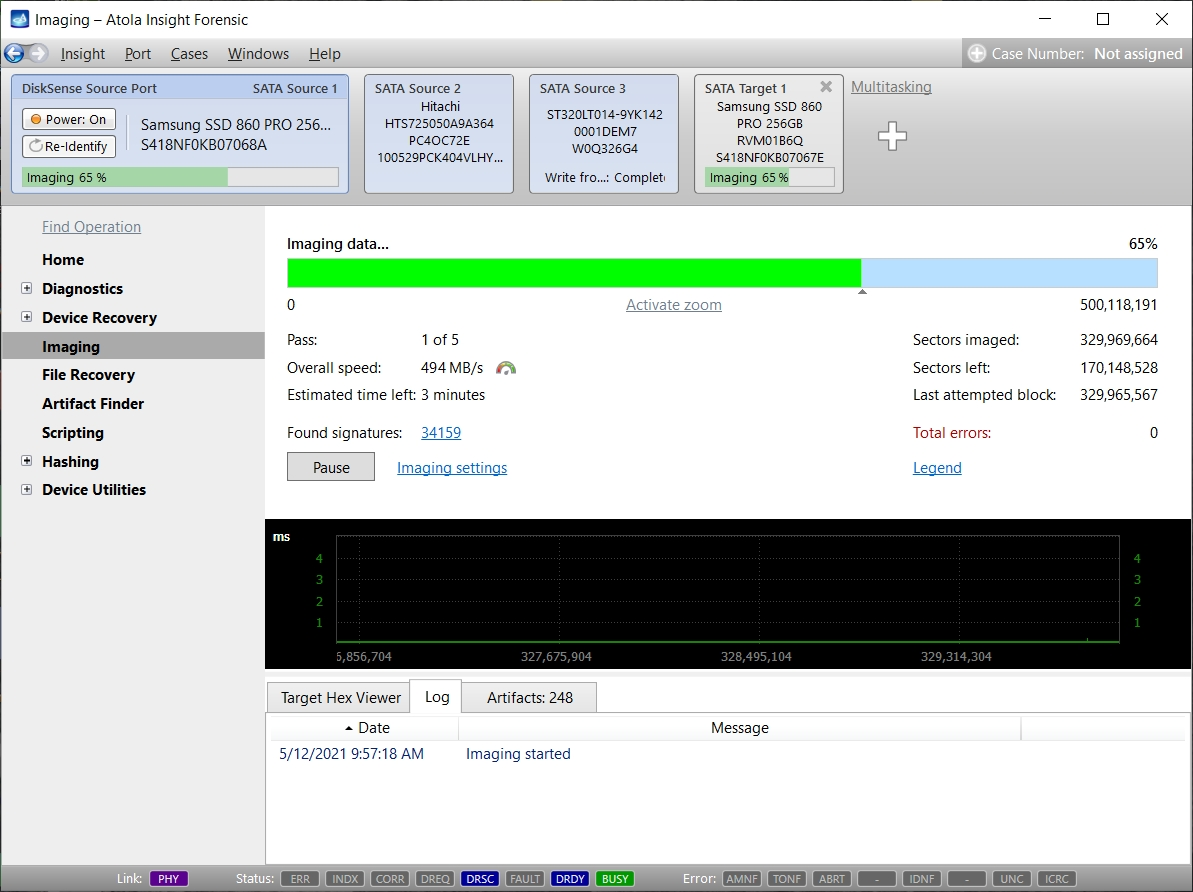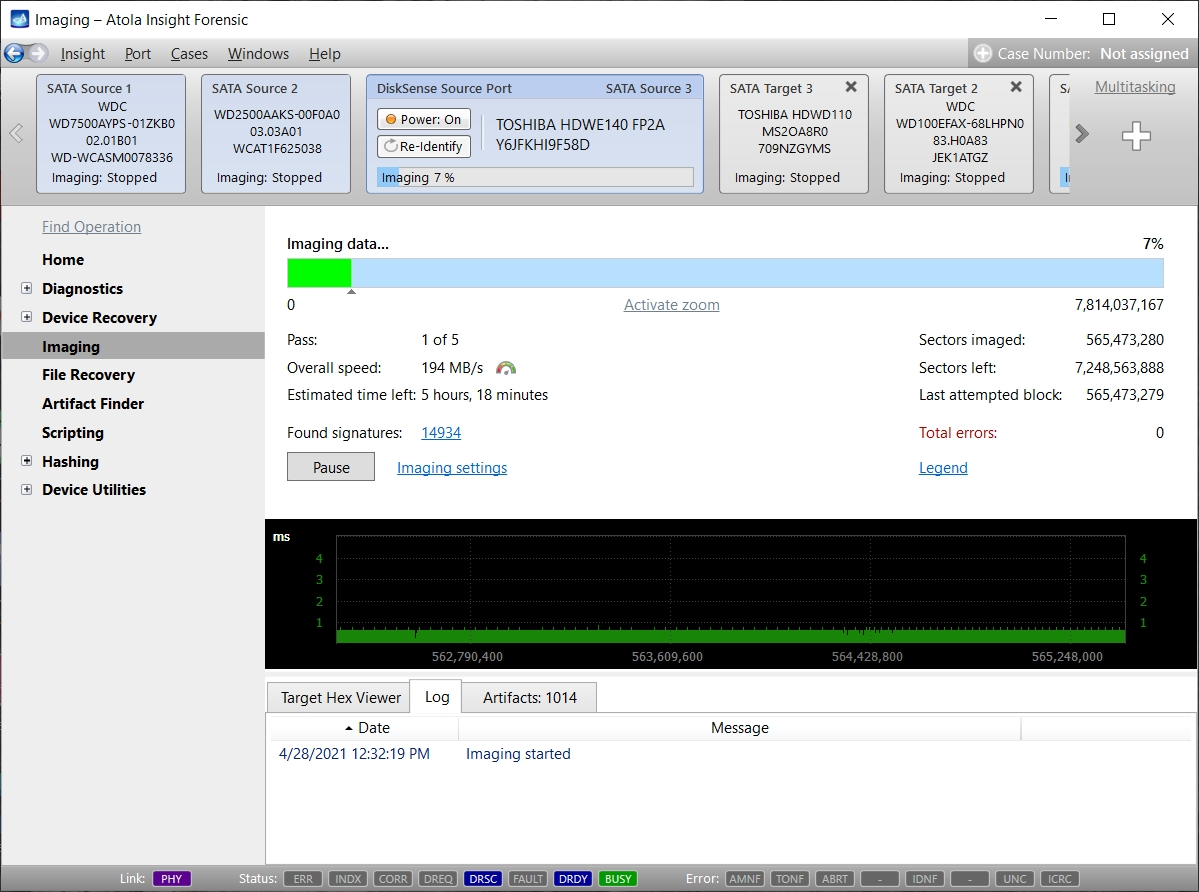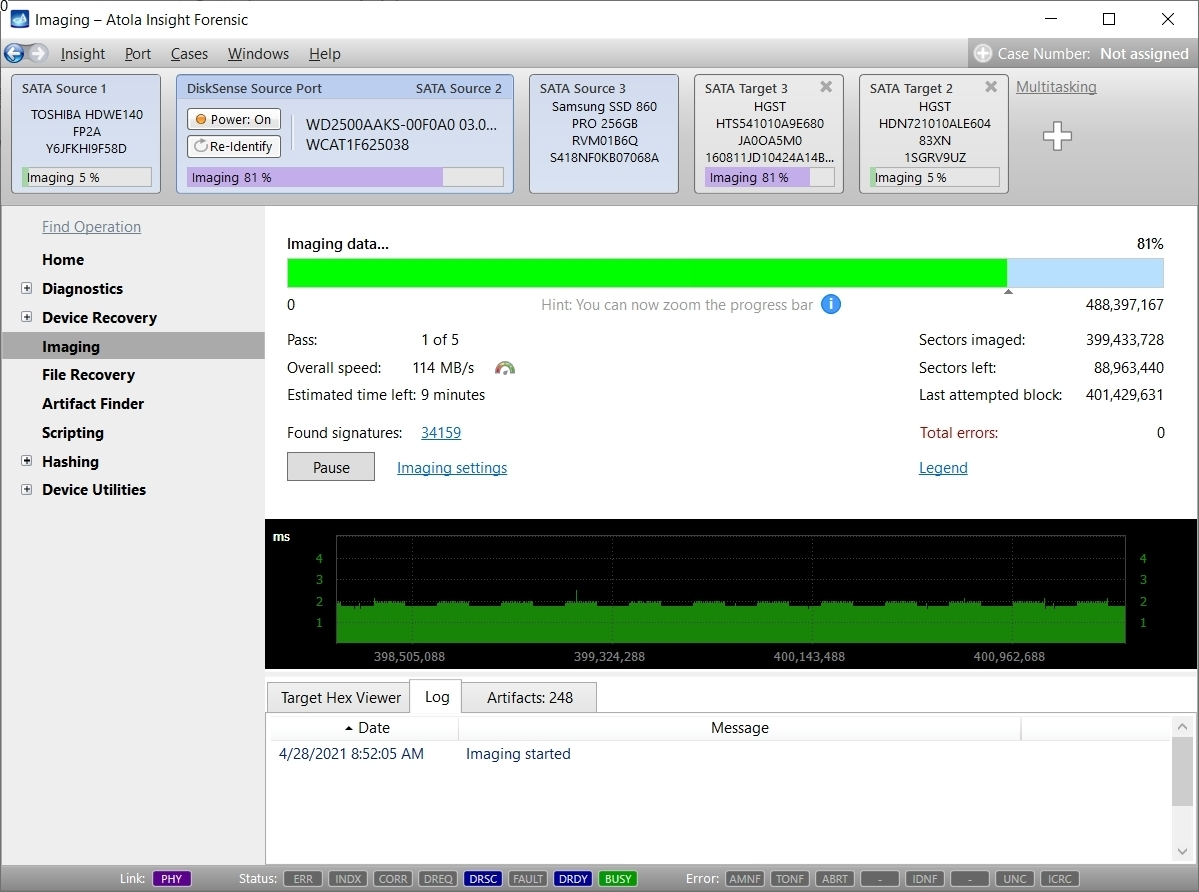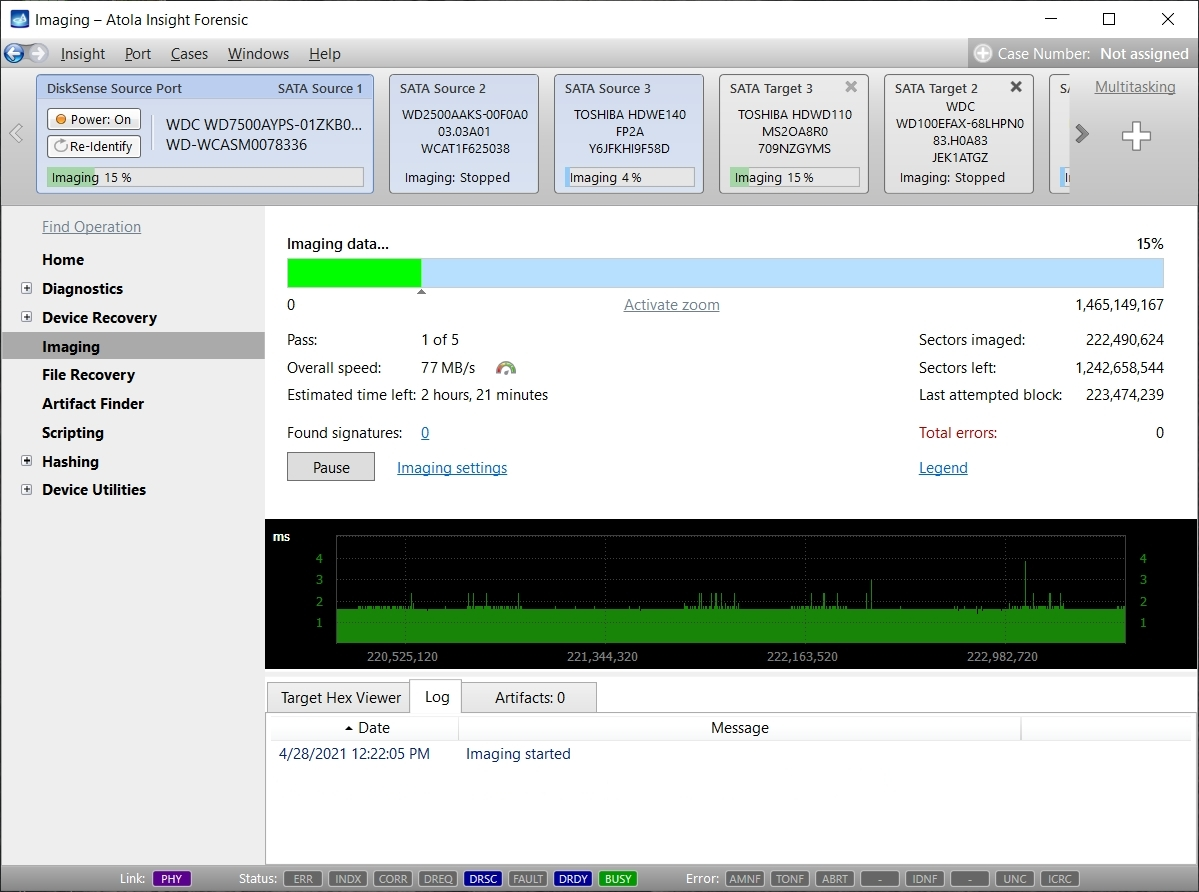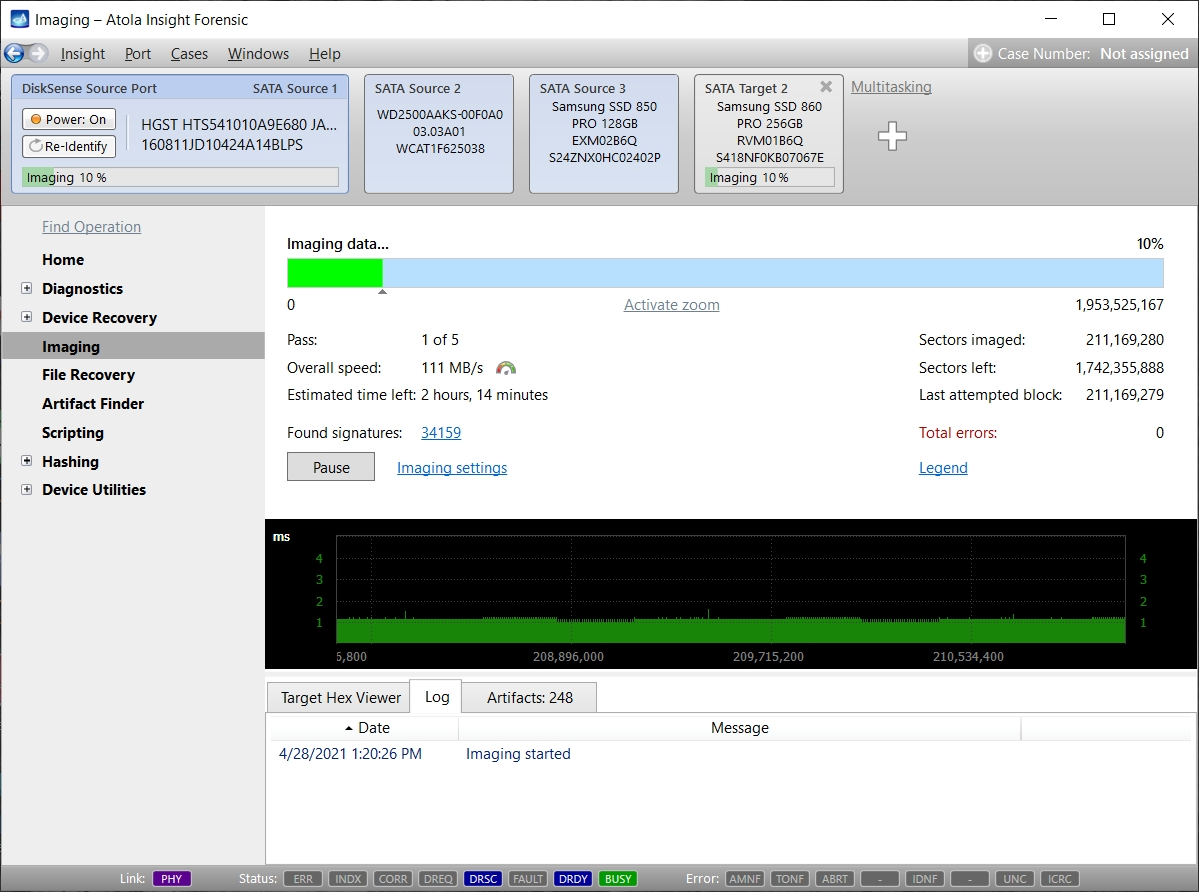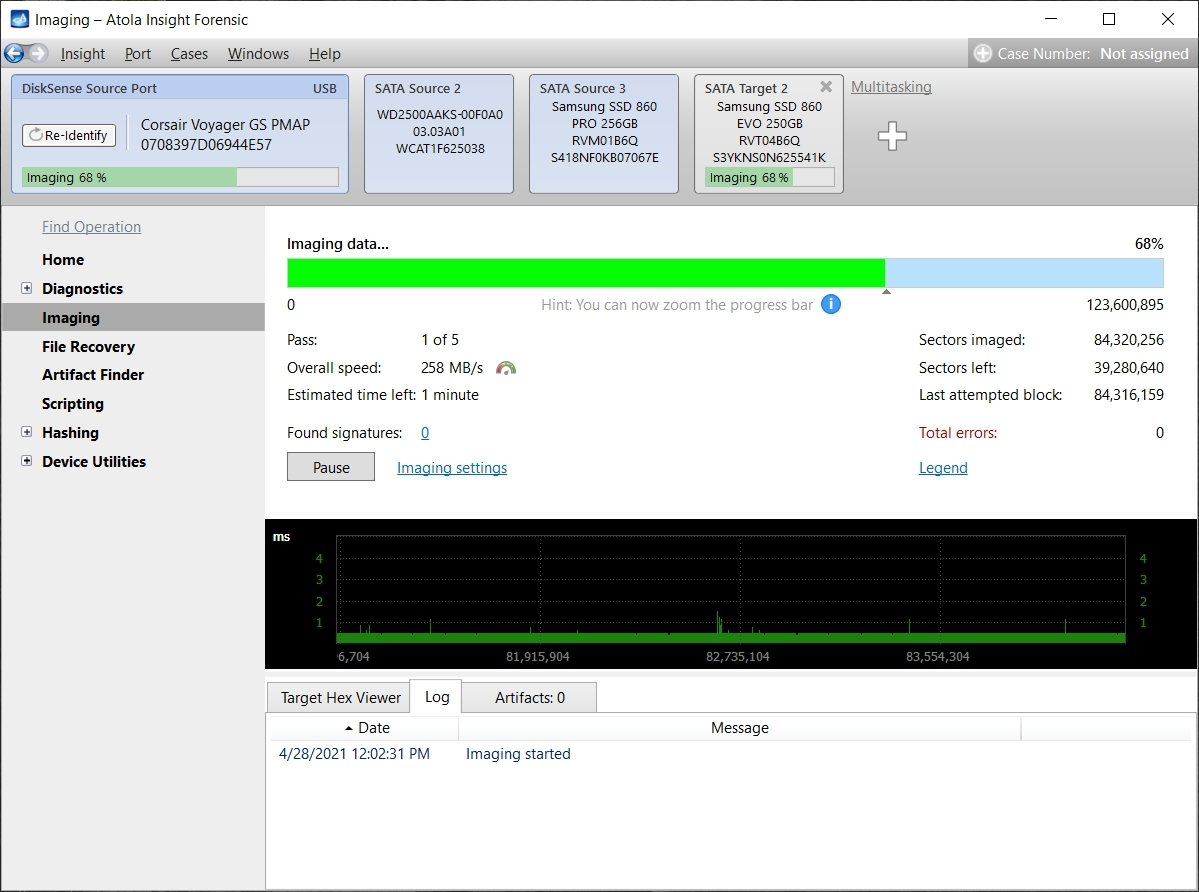Imaging speed
To evaluate Atola Insight Forensic's imaging performance, we imaged a few popular models of HDDs, SSDs and USB flash drives and cross-checked the speed with userbenchmark.com, where you can find detailed info on the minimum, average and maximum read and write speed of almost every data storage device in the market.
NB Imaging speed is always limited by the speed of the slowest of the devices participating in an imaging session. Therefore, the slowest of the two speeds (either the read speed of the source or the write speed of the target) will define the speed at which forensic imaging process is running.
Samsung 860 PRO 256GB
We start with popular Samsung 860 PRO SSDs for both source and target. Both drives are not damaged but are rather worn out because we have been using them for imaging speed demonstrations at trade shows for a few years now. Insight images such SSDs at 494 MB/s (it is the write speed of the target drive that is defines the imaging speed in this case).
At userbenchmark.com, the 256GB Samsung 860 Pro's maximum write speed in sequential mode (sectors read and written to in sequential order) is 490 MB/s, less than the speed demonstrated by Atola Insight.
Toshiba X300 4TB
When Insight images a 4TB Toshiba X300 (an HDD with SATA interface), it achieves the speed of 194 MB/s.
How does this speed compare to the one at userbenchmark.com? The website quotes 184 MB/s of max read speed. Insight's speed substantially exceeded the benchmark speed based on almost 19 thousand samples!
Western Digital's Blue 250 GB (2008)
Insight's speed of imaging a Western Digital's Blue 250 GB constituted 114 MB/s.
At userbenchmark.com the same drive's max read speed is 114 MB/s. Again Insight achieved the top speed based on over 8000 samples.
Western Digital WD7500AYPS 750GB
Insight reaches 77 Mb/s when reading WD7500AYPS 750GB drive.
The same drive at userbenchmark.com achieved the maximum read speed of 76.3 MB/s. Again Insight has exceeded this value.
HGST HTS41010A9E680 1TB
When imaging this HGST 1TB SAS hard drive, Insight achieves 111 MB/s.
And it is a much higher speed than that of userbenchmark.com (104 MB/s max read speed).
Corsair Voyager 3.0 64GB
Next, we image Corsair Voyager 3.0 64GB USB, and Insight reached the speed of 258 MB/s.
The max read speed constituted 281 MB/s as registered by the contributors of userbenchmark.com. Insight imaged it below the max speed but still substantially above the average.
Please note that here we imaged devices that were in overall good health. Imaging may be considerably slower when dealing with a damaged drive, and the speed heavily depends on the type and degree of such damage.
Here are links to the userbenchmark.com pages with the devices mentioned above for your reference (please note that the screenshots in this article were made in May 2021, the indices you find at these links may change over time):
Samsung 850 Pro 256GB https://ssd.userbenchmark.com/Samsung-850-Pro-256GB/Rating/2385
Samsung 850 Pro 128GB https://ssd.userbenchmark.com/Samsung-850-Pro-128GB/Rating/3483
Toshiba X300 4TB https://hdd.userbenchmark.com/Toshiba-X300-4TB/Rating/3592
WD Blue WD2500AAKS 250GB https://hdd.userbenchmark.com/SpeedTest/2143/WDC-WD2500AAKS-00L6A0
WD WD7500AYPS-01ZKB0 750GB https://hdd.userbenchmark.com/SpeedTest/7309/WDC-WD7500AYPS-01ZKB0
HGST Travelstar 5K1000 2.5" 1TB https://hdd.userbenchmark.com/SpeedTest/72/HGST-HTS541010A9E680
Corsair Voyager GT 3.0 64GB https://usb.userbenchmark.com/SpeedTest/5886/Corsair-Voyager-GT-30
